The following is a snap-shot of funding opportunities that have been announced. Please follow the links for more information:
Scoping group for designing future landscapes for biodiversity and ecosystem services – meeting
Natural Environment Research Council, GB
NERC invites applications to join a scoping group that will develop the science case for a potential strategic research programme on designing future landscapes for biodiversity and ecosystem services.
This is one of two potential strategic programme areas (SPAs) which have emerged from the ideas process for strategic research. Any potential SPA must meet NERC’s criteria for a strategic programme, so it is possible that neither will result in a funded programme.
Maximum award: Not known
Closing date: 27 Mar 17 Closing soon
Invitation to quote for the development of an assessment template to monitor sector progress towards open access (OA) compliance with funder policies
Higher Education Funding Council for England, GB
HEFCE, RCUK, Jisc and Wellcome require an understanding of how the higher education sector is progressing towards OA compliance in relation to funder policies. We require further understanding of the tools and systems being utilised by HEIs to fulfil OA compliance needs.
We require a contractor to work with HEFCE, RCUK, Jisc, Wellcome and the HE sector to develop a method to collect appropriate quantitative data on HEI compliance. This must not be unduly burdensome for the institutions to complete and should draw upon existing mechanisms and data where possible. Further detail on the tender requirements can be found in the specification section below.
We anticipate that the eventual data collection will be in the form of an assessment framework (survey) which HEFCE, RCUK, Jisc and Wellcome will deliver in summer 2017.
Maximum award: £25,000
Closing date: 28 Mar 17 Closing soon
LARIA annual conference bursaries
Economic and Social Research Council, GB
The Local Area Research and Intelligence Association (LARIA) and the ESRC invite applications from academic researchers based at UK universities to receive a bursary to attend the LARIA annual conference. The conference will be held on 23-24 May 2017 in Sheffield.
ESRC and LARIA would like to increase the level of attendance by ESRC supported researchers and social scientists generally at the conference. It is the highlight of the research calendar for those researching local areas and is the ‘must go’ event for such analysts. In 2016, over 100 delegates attended from the public sector including local authorities, fire and rescue services, health, and housing. The majority of attendees are from local authorities and the sector is known for its commitment to collaboration and innovation.
Maximum award: Not known
Closing date: 03 Apr 17 (recurring)
University of Sheffield/English Heritage/AHRC – the evolution of Audley End collaborative PhD studentship
Arts and Humanities Research Council, GB
These studentships are based on research areas we have identified because they will:
- Advance the protection of the historic environment
- Advance understanding and interpretation of the nationally important sites in the care of English Heritage
- Are in areas we would not otherwise be able to carry out research on by ourselves alone.
They are supervised by both Historic England and English Heritage experts in partnership with University academics.
The CDP programme provides the perfect opportunity to align practical research with heritage protection outcomes. It also provides skills-sharing to students planning careers in heritage research and management; and by doing that, it helps to address skills shortages in the heritage profession.
Maximum award: Not known
Closing date: 17 Apr 17
Accelerating innovation in rail
Innovate UK, GB
The rail industry is transforming the way it manages innovation and introduces new technologies. The Rail Capability Delivery Plan 2017 outlines the industry’s vision for using technology to create a better railway. This competition aims to provide direct support and encourage collaboration between rail industry clients and innovative businesses.
The focus of this competition is industrial research. To be in scope proposals must demonstrate how they meet specific industry challenges. Proposals should contribute to the high-level programmes developed by the rail industry, as outlined below. Future exploitation is a key priority. Applications should provide evidence of a market need for specific solutions and engagement with potential rail industry customers.
Maximum award: Not known
Closing date: 10 May 17
Research institute in hardware security
Engineering and Physical Sciences Research Council, GB
Reflecting the aims of the National Cyber Security Strategy, the UK Government and its delivery partners are working to increase the UK’s academic capability in all fields of Cyber Security. EPSRC and NCSC are inviting proposals from academic researchers to form a Research Institute in Hardware Security. The Research Institute will be jointly funded by NCSC and EPSRC, with an indicative budget from the sponsors of £5 million over five years. In order to establish the institute there are two concurrent calls – one to identify a director of the institute and one to support initial research projects.
Working in conjunction with NCSC whilst undertaking research to be published in the public domain, the Research Institute will identify and address key issues that underpin our understanding of Hardware Security.
This call will identify a number of research projects to form the core research activity of the institute. The concurrent call ‘Research Institute in Hardware Security – Call for Director’ will invite proposals for the Director.
Maximum award: Not known
Closing date: 10 May 17
UK-Philippines – joint health research initiative
Medical Research Council, GB
The UK Medical Research Council (MRC), and the Department of Science and Technology (DOST) through the Philippine Council for Health and Research Developmentopens in new window (PCHRD) invite concept proposals to the second UK-Philippines Joint Health Research Call.
This initiative will provide funding for high quality 3-year collaborative research projects focusing on Communicable and Non-Communicable Diseases of relevance to the Philippines. This exciting initiative builds on the MRC-PCHRD Call launched in 2015 through which 6 proposals addressing research needs in Infectious Diseases were funded.
Maximum award: Not known
Closing date: 11 May 17
Productivity network plus
Economic and Social Research Council, GB
The ESRC is pleased to invite applications for a Productivity Network.
Productivity has a major bearing on sustainable economic growth. The UK’s ongoing low levels of productivity, especially in comparison with international competitors, are of critical concern and require affirmative action on the part of both government and business. To aid progress, the UK needs research to help understand and explain the factors affecting productivity levels, and to provide robust evidence to inform policy and practice. The complex nature of the productivity challenge requires a multi-perspective, interdisciplinary approach.
To this end, the ESRC will fund an interdisciplinary ‘Network Plus’ as a first step to developing the capacity needed to sustain a substantive multidisciplinary and policy-orientated research programme. The network will include representatives from the policy community and the private sector, as well as academics from a range of disciplines. It will connect interdisciplinary research groups and networks from academia, policy and business; complement and collaborate with existing capacity and current research agendas (whether or not ESRC-funded); and develop an understanding of the current state of productivity research. It will promote methodological innovation and develop a series of small-scale studies. The Network Plus will also play a role in co-ordinating the ESRC’s data strategy for productivity, including by encouraging the exploitation of existing data resources and feeding into the development of new data infrastructure.
Maximum award: Not known
Closing date: 17 May 17
COMING SOON: Industrial CASE studentships
Medical Research Council, GB
*** This opportunity will be available soon. The next call is expected to open in April and close in July 2017. The following information is subject to change. These studentships aim to provide students with research training experience by facilitating collaborations with academic and non-academic partner organisations. ***
Driving innovation and collaborating with industry remains at the heart of MRC strategy and delivery plans.
Our industrial CASE (iCASE) PhD studentship scheme has for many years played a key role in this by helping develop partnerships and enabling students to benefit from a broad and unique training experience.
Given this previous success and the enormous potential that industry-academic collaboration has to offer for UK society and the economy, we wish to enhance the flexibility of the MRC iCASE studentship scheme.
Maximum award: Not known
Closing date: Not known
Find more funding opportunities
Search all the latest calls
If you are interested in submitting to any of the above calls you must contact your RKEO Funding Development Officer with adequate notice before the deadline.
For more funding opportunities that are most relevant to you, you can set up your own personalised alerts on Research Professional. If you need help setting these up, just ask your School’s/Faculty’s Funding Development Officer in RKEO or view the recent blog post here.
If thinking of applying, why not add notification of your interest on Research Professional’s record of the bid so that BU colleagues can see your intention to bid and contact you to collaborate.





 RCUK have issued the following
RCUK have issued the following 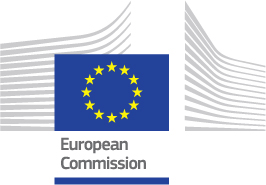

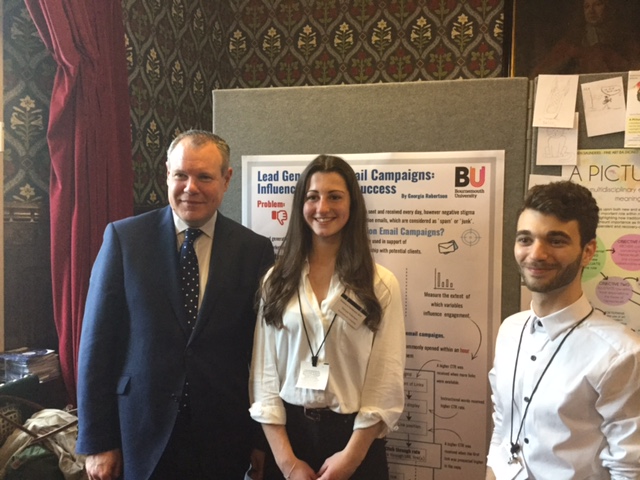
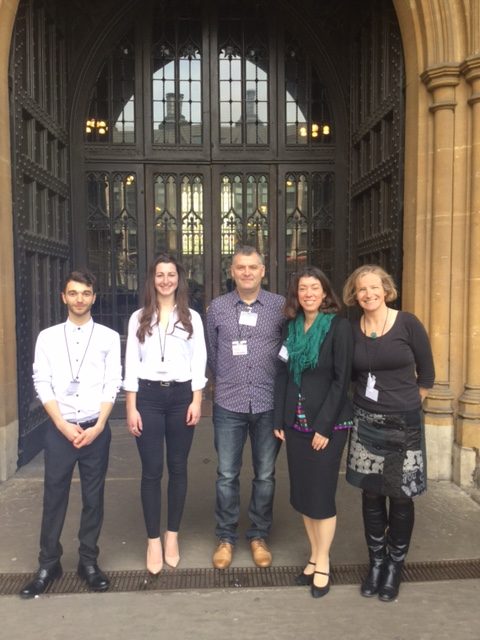
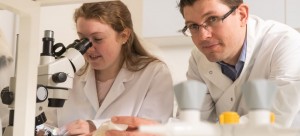
 The call for participants for the 2017 ESRC Festival of Social Sciences will be opening on 29th March. The festival this year is taking place from the 4th to the 11th of November with events taking place across the BU Campus and in the local area. We will be looking for applications from social sciences researchers to run workshops/exhibitions/lectures/activities (we’re open to ideas) open for attendance for the wider public.
The call for participants for the 2017 ESRC Festival of Social Sciences will be opening on 29th March. The festival this year is taking place from the 4th to the 11th of November with events taking place across the BU Campus and in the local area. We will be looking for applications from social sciences researchers to run workshops/exhibitions/lectures/activities (we’re open to ideas) open for attendance for the wider public.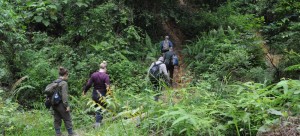













 REF Code of Practice consultation is open!
REF Code of Practice consultation is open! BU Leads AI-Driven Work Package in EU Horizon SUSHEAS Project
BU Leads AI-Driven Work Package in EU Horizon SUSHEAS Project Evidence Synthesis Centre open at Kathmandu University
Evidence Synthesis Centre open at Kathmandu University Expand Your Impact: Collaboration and Networking Workshops for Researchers
Expand Your Impact: Collaboration and Networking Workshops for Researchers ECR Funding Open Call: Research Culture & Community Grant – Apply now
ECR Funding Open Call: Research Culture & Community Grant – Apply now ECR Funding Open Call: Research Culture & Community Grant – Application Deadline Friday 12 December
ECR Funding Open Call: Research Culture & Community Grant – Application Deadline Friday 12 December MSCA Postdoctoral Fellowships 2025 Call
MSCA Postdoctoral Fellowships 2025 Call ERC Advanced Grant 2025 Webinar
ERC Advanced Grant 2025 Webinar Update on UKRO services
Update on UKRO services European research project exploring use of ‘virtual twins’ to better manage metabolic associated fatty liver disease
European research project exploring use of ‘virtual twins’ to better manage metabolic associated fatty liver disease